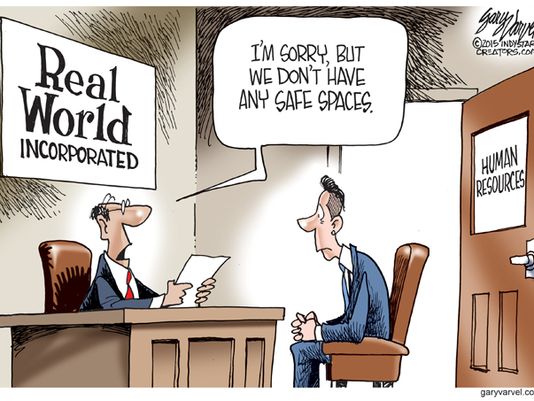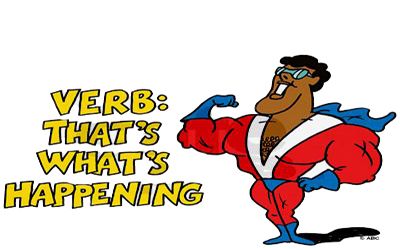Special 2016 “Alan Harrison’s Birthday” Edition: Pack Up the Babies and Grab the Old Ladies – And an Easy-To-Fulfill Wish List

I was born on May 14. Conceived on a hot August night. Neil Diamond would’ve been proud. He was old enough to have a kid then, so…who knows? Brother Love? Are you my papa?
From him, I want flowers.
From you, I want (this is your cue):
- A 137-word card. ( <–Yes, that’s a link.)
- Share your favorite 137 Words post with your social network (that’s “share,” not “like”).
- To join a great company with a great mission. In Seattle.
- Health for The Kid.
- Guidance for The Kid.
- The love of my life to be happy, fulfilled, and curious. You know who you are.
- The ability for you to guide your favorite nonprofit to safety, security, and success.
- Brilliantly measurable missions, better than you believe you’re capable of.
- Complete, successful execution of those brilliant new missions.
- Pie, not cake.
Artists and Non-Offensiveness: The Tyranny of Over-Sensitivity, Feelings, and Participation Trophies

There’s a troubling trend. There’s an absurd unwillingness to offend that seems pervasive among arts creators.
Not that creators are creating “Pleasant Art,” per se. Writers and artists are creating lots of work that is designed to make audiences uncomfortable. Which is good. The work may be about single issues and not terribly complex, but it’s good.
However, there are too many artists raised in atmospheres where everyone wins, even when they lose. In the name of inclusion and self-esteem, they live in a world where, like toddlers, “feeling bad” is simply unacceptable.
They believe they’re special.
To these artists:
- You are not special.
- You do not deserve success.
- Sometimes you lose.
It’s what you do with that information that defines you.
If you believe that nobody should ever have hurt feelings, you’re not doing your job.
Leadership Issues: Flop Sweat, Board Meetings, and When You Lose the Room

Inevitably, there are moments where analysis disconnects with sentiment. You plan by yourself and generate work for your staff. Your staff objects. You have misread the room and caused great resentment. They think you’re a nut.
You’re in a big job interview. The interviewers say they want to “have a conversation,” but instead read from a pre-chosen list of questions. You try to converse. They bridle, citing “fairness.”
Your meetings with the board leave you rolling your eyes…and leave them rolling their eyes as well. You think they don’t understand the problem. They’re sure you don’t.
When you lead by pronouncement rather than by consensus; when you define interviews as interrogations; when you perceive meetings with superiors as continual performance evaluations – these are your issues, not theirs. That anxious sweat on your neck is on you.
How You Can Solve Diversity With Your Nonprofit Arts Organization!
You can’t.
Arts organizations challenge, reflect, and engage. They don’t solve.
And remember, race is only one small bit of cultural diversity, not all of them. Just as the opposite of love isn’t “hate,” but “indifference;” the opposite of diverse isn’t “white,” but “homogeneous.”
I read a political blog recently about the Democratic Party presidential race. What troubled me were these words:
“What I’m crossing my fingers for is that in ten years or so we’ll get… a young,
charismatic democratic socialist who runs for president. (Preferably this
candidate would be a woman or a non-white person or, ideally, both.)”
Isn’t that parenthetical statement just as intolerant as one where “not” had been inserted after “would?”
Diversity isn’t only about race or gender or any of myriad other categories. It’s about power, shared equally, with specific impact.
Nonprofit Arts Leaders: 137 Powerful Verbs for your Mission or Programs – Instead of Hyperbolic or Aspirational Adjectives. (Boring Headline, Yes?)

Accelerate
Achieve
Acquire
Advance
Advise
Advocate
Align
Amplify
Analyze
Arbitrate
Assemble
Assess
Attain
Audit
Award
Boost
Build
Calculate
Campaign
Capitalize
Chart
Clarify
Coach
Complete
Compose
Conserve
Consolidate
Consult
Convert
Convey
Convince
Coordinate
Correspond
Counsel
Create
Cultivate
Customize
Decrease
Deduct
Define
Delegate
Deliver
Demonstrate
Design
Develop
Devise
Diagnose
Discover
Document
Earn
Educate
Enable
Enforce
Engineer
Enhance
Ensure
Establish
Evaluate
Examine
Exceed
Execute
Explore
Facilitate
Forecast
Forge
Formulate
Foster
Further
Gain
Generate
Guide
Identify
Illustrate
Implement
Improve
Incorporate
Influence
Inform
Initiate
Inspect
Inspire
Integrate
Interpret
Introduce
Investigate
Launch
Lift
Lobby
Maximize
Measure
Mentor
Merge
Mobilize
Modify
Monitor
Motivate
Navigate
Negotiate
Orchestrate
Organize
Overhaul
Partner
Persuade
Pioneer
Plan
Produce
Program
Promote
Qualify
Quantify
Reconcile
Recruit
Reduce
Refine
Replace
Resolve
Revamp
Review
Scrutinize
Shape
Simplify
Stimulate
Strengthen
Succeed
Supervise
Surpass
Survey
Sustain
Target
Teach
Track
Train
Transform
Unite
Update
Verify
Yield
Arts Organizations: What is Your Art? Is it “It?” Is it a Picture of “It?” A Report of “It?” None of the Above?

45 years ago today, February 9, an earthquake happened. I was shaken out of bed and looked out the window just in time to see a brick chimney fall on Dr. Prince’s new 240Z. That’s what happened to me.
We turned on the television to see films about the Van Norman Dam — in danger of bursting. I saw that through a lens.
The next day’s LA Times had the front-page story, “DAY OF DISASTER — Quake Leaves 42 Dead, 1,000 Hurt; Periled Dam Forces 40,000 to Flee.” I read that report.
The racing results, as always, were in the sports section. A square box on the front page said so. Horse racing is a popular entertainment. I didn’t care.
Is your art happening to your constituents? Is it through a filter? Is it second-hand? Or is it entertainment? Only one is personally meaningful.
Life on the Unraveling Nonprofit Arts Fringe: Why Hiring Experience and Guile Trumps Everything Else
Actor Hugh O’Brian is said to have coined “The 5 Stages of an Actor’s Career;”
- Who is Hugh O’Brian?
- Get me Hugh O’Brian.
- Get me a Hugh O’Brian type.
- Get me a young Hugh O’Brian.
- Who is Hugh O’Brian?
We’re in contact with hundreds of highly-experienced, resilient people who have made a career in the arts – and they’re having difficulties getting back into the field.
Some of it is ageism. Boards use headhunters to find smart young guns to lead departments or organizations — only to find that instead, they’ve hired brilliant 2-year placeholders with few people skills, entitlement issues, little flexibility, and quick parachutes.
Studies show those >50 stay longer than those under <40, are more productive, have better improvisational skills and flexibility, and are likelier to bring success.
Forget headhunters. Do your own search. Hire someone better than you.
Resilience Makes Other People Feel Better
After reading this article by Melissa Chadburn, I thought hard about my own resilience. I’ve put myself through hell over the last 5 years. But I find it weird when friends and (especially) relatives call me “resilient.”
As opposed to what? Suicidal? That’s the bar?
But it makes other people feel better. Like the cigarette-smoking, coffee-drinking people in the article, resilience does nothing for me.
In nonprofits, especially arts organizations, resilience is incorrectly measured by survival, not by impact. Longtime organizational survival is not proof of quantifiable impact. It’s like seeing the biggest pumpkin or smallest sneaker. If the pie is lousy and the shoe doesn’t fit, the rest of it doesn’t matter.
I once went to a restaurant advertised as the “oldest Chinese restaurant” in town. The food was horrible.
Resilience is not the goal; impact is.

